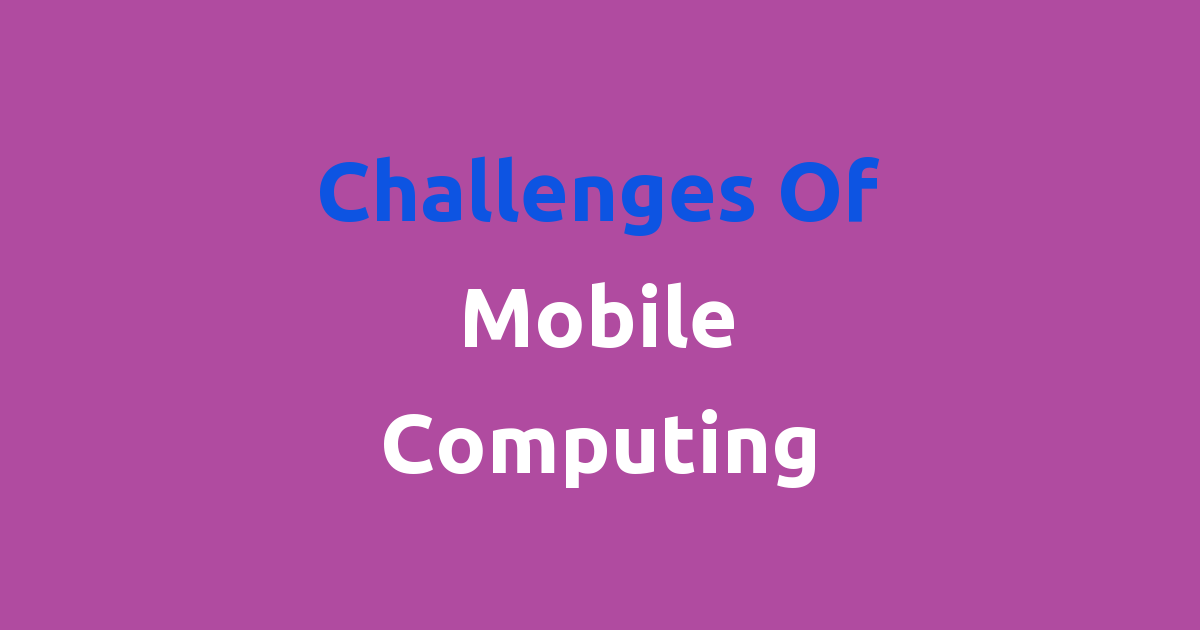Mobile computing poses various challenges.
Challenges of Mobile Computing
Introduction
Mobile computing has revolutionized the way we work, communicate, and access information. With the advent of smartphones and tablets, we are now able to carry powerful computing devices in our pockets. However, with this convenience comes a number of challenges that need to be addressed in order to make mobile computing more efficient and secure.
Problem Statement
One of the main challenges of mobile computing is the limited processing power and memory of mobile devices. This can lead to slow performance and can limit the capabilities of the applications that can be run on these devices. Additionally, the small screen size of mobile devices can make it difficult to properly view and interact with content, leading to a less-than-optimal user experience.
Existing System
The existing system for mobile computing relies heavily on cloud services to offload processing and storage tasks from the mobile device. While this can help to alleviate some of the limitations of mobile devices, it also introduces new challenges such as security and network connectivity issues. Furthermore, the reliance on cloud services can result in high data usage and potential privacy concerns.
Disadvantages
One of the main disadvantages of current mobile computing systems is the lack of control and security over user data. With so much personal and sensitive information being stored on mobile devices, there is a constant risk of data breaches and unauthorized access. Additionally, the fragmentation of the mobile ecosystem can make it difficult for developers to create applications that work seamlessly across different devices and operating systems.
Proposed System
In order to address these challenges, we propose a new mobile computing system that focuses on improving the performance, security, and user experience of mobile devices. This system will utilize edge computing to offload processing tasks to nearby edge servers, reducing the load on the mobile device and improving overall performance. Additionally, we will implement advanced security measures such as biometric authentication and encryption to protect user data from unauthorized access.
Advantages
The proposed system offers a number of advantages over the existing system, including improved performance, enhanced security, and a better user experience. By offloading processing tasks to edge servers, we can reduce the strain on mobile devices and allow for more complex and resource-intensive applications to be run on these devices. Additionally, the implementation of advanced security measures will help to protect user data from malicious attacks and unauthorized access.
Features
Some of the key features of the proposed system include:
– Edge computing: Offloading processing tasks to edge servers to improve performance
– Biometric authentication: Enhanced security measures to protect user data
– Encryption: Secure data transmission and storage to prevent unauthorized access
– Seamless integration: Applications that work seamlessly across different devices and operating systems
– Improved user experience: Better performance and usability for mobile users
Conclusion
In conclusion, mobile computing presents a number of challenges that need to be addressed in order to make it more efficient and secure. By implementing a new mobile computing system that focuses on improving performance, security, and user experience, we can overcome these challenges and unlock the full potential of mobile devices. The proposed system offers a number of advantages over the existing system and will help to pave the way for a more secure and efficient mobile computing experience for users.

